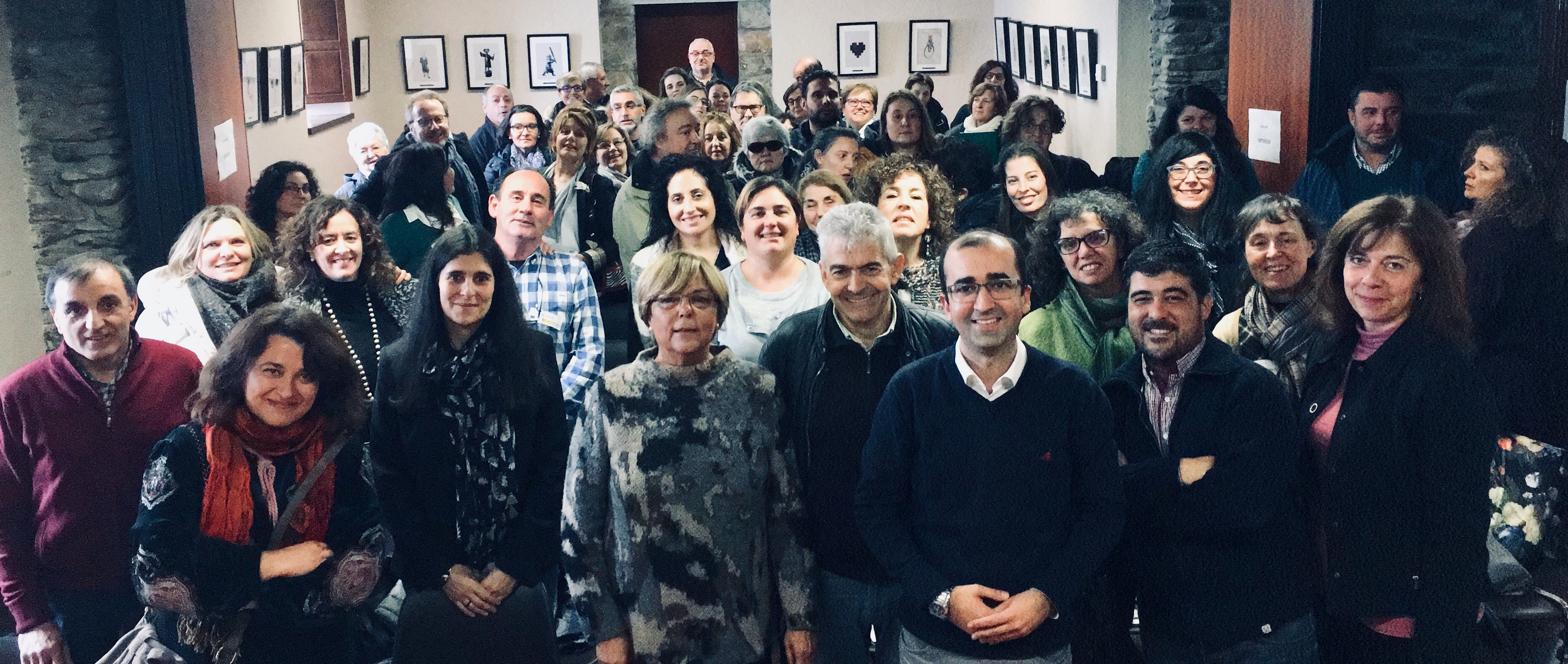
14 de December de 2018
Mujeres
The male-dominated population in rural areas, as well as the difficulties in consolidating the population, reflect the need to address the gender perspective in the rural economy to ensure equal rights and improve the socioeconomic situation in the region.
Women: key to rural development and economic diversification
"Women in rural areas face double discrimination." This was the emphatic statement by Pilar González Fidalgo, an expert in natural space management from the Regional Government of Castile and León, during her speech at the conference on economic diversification with a gender perspective in Murias de Paredes, León. This event was organized by the National Rural Network on December 13th at the suggestion of the Spanish Federation of Municipalities and Provinces (FEMP).
The event was opened by the Mayor of Murias de Paredes, Maria del Carmen Mallo, who was accompanied by José Víctor Rodríguez, President of the Rural Development and Fisheries Commission of the FEMP and Mayor of Cangas del Narcea, and Faustino Sánchez, Deputy Government Delegate in Castilla y León. Focusing on the key role women play in rural areas, José Víctor Rodríguez pointed out that the future of rural areas depends on supporting specific initiatives in sectors geared toward young people and women, all those who want to stay in the region, and that to achieve this, concrete measures must be taken with specific aid. He highlighted, for example, the LEADER funds and the Asturian case, which in three years has launched five calls for projects, promoting generational renewal, the settlement of women and young people, and thus combating the major problem of depopulation.
Rural women and depopulation
To talk about rural development is to think about children, about a family. This is the great challenge we face, according to the FEMP. All the basic services that support population development in rural areas, such as healthcare and the proximity of a doctor's office or family doctor; when we talk about schooling, we refer to primary, secondary, and high schools; or decent connectivity services, internet access, and a transportation network that brings people and territories closer together. These are some of the key elements needed to establish families, and which today highlight the problems that exist between urban and rural areas.
Promoting gender equality, equal treatment, and equal opportunities are key factors in territorial revitalization and economic diversification in rural areas. Pilar, who outlined some of the positive measures being promoted for the development of rural areas, went on to point out that, in addition to being a woman, the lack of opportunities, the high proportion of men, and the lack of basic services and communication infrastructure make it even more difficult to launch any entrepreneurial project in rural areas.
On behalf of the Ministry, Isabel Gimeno emphasized the importance of coming to the territory with the territory, of gathering all the opinions and concerns of the people who live in the villages, of adapting and experiencing the reality firsthand. From a critical perspective, she noted that much remains to be done, but that the Subdirectorate General for Rural Development is currently working to implement measures to promote greater visibility and the incorporation of women into economic activity, such as the push to disseminate the Shared Ownership Law , with the aim of analyzing obstacles and improving aspects of it. Collaboration is planned with the Regional Governments and, among others, with the Ministry of Finance to seek, through fiscal policy, possible incentive instruments for this figure, as well as to establish a specific, cross-cutting, high-level working forum that addresses the problems of rural women.
Budget allocation, administrative simplification, the restoration and implementation of basic public services, public employment, and the prioritization of women-led projects are some of the proposals mentioned as the backbone of rural areas, without forgetting that "without women there is no future, and without women there are no villages."
Entrepreneurship and women leaders in the territory
Rosana, Verónica, Soledad, and Rosa are some of the women who have embraced their territories, their land, and their roots. They demonstrate that the rural environment is not just about agriculture and livestock, and that there is a wide range of possibilities for entrepreneurship and making the rural environment a way of life, in harmony with traditions and nature.
Rosana, for example, is the first and only woman in Castile and León to own an organic livestock farm. Rosana presented herself as a unique case, having left home at the age of 12, having studied for a degree, and having experienced both realities, she took a chance and decided to become a livestock farmer out of conviction. She is both a rural woman and a livestock farmer, and although she is very proud, she knows she has a double handicap. In a sector as masculinized as the livestock sector, Rosana has carved out a niche for herself through tenacity, effort, hard work, and self-pride. She obtained the organic livestock certification after a two-year transition, although she admits that what was most difficult for her was not the adaptation from conventional to organic livestock farming, but rather the entire process involving paperwork, inspections, and a lot of back and forth with the authorities. Rosana points out that in rural areas, money isn't as important as the intention and desire to invest in the land, holding one's head high, feeling proud of being from the village.









